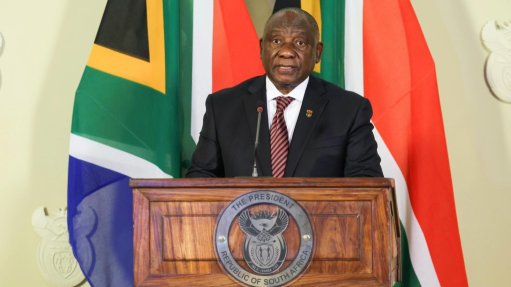African ratings quest
The call for ‘African solutions for Africa’s problems’ resonates strongly in discussions about our continent. Cunning autocrats have also invoked it, wielding it as a shield to deflect international scrutiny. A notable example is the late Robert Mugabe, who barred Western observers from Zimbabwe’s deeply flawed elections, citing bias while expertly evading accountability for electoral irregularities.
Besides the Mugabes of this world, who exploit it for self-preservation, there are genuine champions, such as the African Union (AU), which has been advocating for an African-owned ratings agency. The continental body argues that its member countries have been unfairly treated by agencies based abroad. Its erstwhile rotational head, retired Senegalese President Macky Sall, charged in 2022 that “the perception of risk continues to be higher than actual”.
The ʻhigh risk’ perception attributed to African countries results in elevated borrowing costs for these nations.
The view that ratings agencies are biased against African countries has found traction beyond AU HQ in Addis Ababa; it also resonates among academics and esteemed institutions, including none other than the UN. According to the global body’s estimates, African countries could have saved a staggering $75-billion in debt service costs had the ratings agencies applied “objective” ratings.
The real villains of the piece in the bias narrative are the Big Three in the ratings space – S&P Global Ratings, Moody’s and Fitch Group – which collectively control 95% of the market. They are all private corporations based in the US. Their detractors argue that they do not invest adequately in understanding the African economies they assess, such as by employing in-country staff. This, the argument goes, limits their ability to offer unbiased qualitative assessments.
It’s against this backdrop that the AU has been actively discussing a distinctly African approach to address the continent’s longstanding ratings dilemma. This discourse is on the cusp of evolving into decisive action. Albert Muchanga, the AU commissioner for development, trade, tourism, industry and minerals, told reporters in the Ghanaian capital of Accra about two weeks ago that the planned AU-owned ratings agency is set to start operations in 2025.
The agency is being established by the AU’s African Peer Review Mechanism, the African Development Bank, the African Import-Export Bank and the AU Commission. It will contribute to derisking the African capital market so that African countries are assessed fairly and no longer borrow at higher interest rates relative to borrowers in emerging markets and in developed countries.
But is it truly accurate to assert that African countries have been unfairly treated by ratings agencies? The answer may not be so straightforward. Moritz Kraemer, formerly of S&P and now chief economist at German bank LBBW, challenges this narrative. He suggests that the bias claim would hold water only if B-rated African countries, for example, were statistically less prone to default than B-rated countries from other regions.
Citing S&P statistics, Kraemer says sub- Saharan African sovereigns rated in the B category between 2010 and 2023 defaulted in 22% of all cases within five years, surpassing the global average of 16%. Moody’s reported an even higher default rate of 30% for sub- Saharan Africa, compared with 15% globally, during the same period.
It’s also worth noting that Africa already has ratings agencies, albeit owned by foreigners. Among them is Global Credit Rating (GCR), now wholly owned by Moody’s following last month’s acquisition of shares previously held by Germany’s DEG and the US’s Carlyle. GCR had offices in several African countries: Kenya, Mauritius, Nigeria, Senegal and South Africa. If, as one commentator pointed out last week, the concern revolved around the Big Three’s limited understanding of African economies, sovereigns in Africa could opt for bond ratings from GCR instead. As we know, this hasnʼt been the case.
African sovereigns likely sideline African ratings agencies because their target investors assign more weight to Big Three reports, notwithstanding perceptions about bias. That said, will the forthcoming home-grown agency make a big difference? Only time will tell.
Article Enquiry
Email Article
Save Article
Feedback
To advertise email advertising@creamermedia.co.za or click here
Announcements
What's On
Subscribe to improve your user experience...
Option 1 (equivalent of R125 a month):
Receive a weekly copy of Creamer Media's Engineering News & Mining Weekly magazine
(print copy for those in South Africa and e-magazine for those outside of South Africa)
Receive daily email newsletters
Access to full search results
Access archive of magazine back copies
Access to Projects in Progress
Access to ONE Research Report of your choice in PDF format
Option 2 (equivalent of R375 a month):
All benefits from Option 1
PLUS
Access to Creamer Media's Research Channel Africa for ALL Research Reports, in PDF format, on various industrial and mining sectors
including Electricity; Water; Energy Transition; Hydrogen; Roads, Rail and Ports; Coal; Gold; Platinum; Battery Metals; etc.
Already a subscriber?
Forgotten your password?
Receive weekly copy of Creamer Media's Engineering News & Mining Weekly magazine (print copy for those in South Africa and e-magazine for those outside of South Africa)
➕
Recieve daily email newsletters
➕
Access to full search results
➕
Access archive of magazine back copies
➕
Access to Projects in Progress
➕
Access to ONE Research Report of your choice in PDF format
RESEARCH CHANNEL AFRICA
R4500 (equivalent of R375 a month)
SUBSCRIBEAll benefits from Option 1
➕
Access to Creamer Media's Research Channel Africa for ALL Research Reports on various industrial and mining sectors, in PDF format, including on:
Electricity
➕
Water
➕
Energy Transition
➕
Hydrogen
➕
Roads, Rail and Ports
➕
Coal
➕
Gold
➕
Platinum
➕
Battery Metals
➕
etc.
Receive all benefits from Option 1 or Option 2 delivered to numerous people at your company
➕
Multiple User names and Passwords for simultaneous log-ins
➕
Intranet integration access to all in your organisation

















